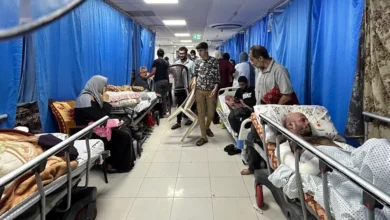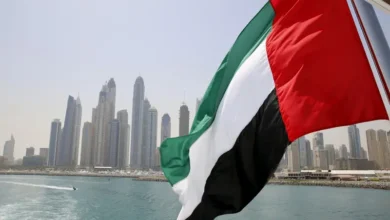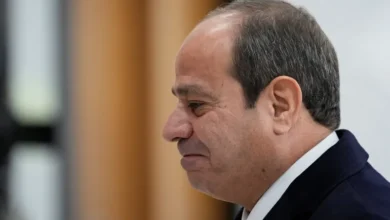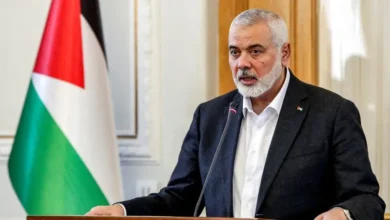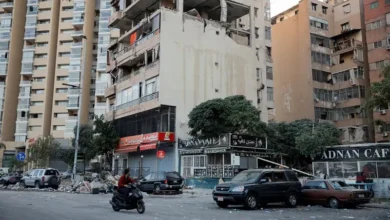European prosecutors in Beirut view bank data in c.bank governor probe: Sources

European prosecutors in Beirut this week examined bank transfer documents related to an investigation into whether Lebanon’s central bank chief Riad Salameh and his brother embezzled public funds, four people familiar with the matter said.
Prosecutors from Germany, France and Luxembourg, who are conducting a cross-border money laundering probe, suspect Riad Salameh and his brother Raja illegally took more than $300 million from the central bank between 2002 and 2015, European judicial officials said, mirroring a Swiss probe into the case.
A Lebanese judge charged Riad Salameh with illicit enrichment in March in a separate but related probe.
The central bank governor and his brother deny the accusations. Riad Salameh has said he is being made a scapegoat for Lebanon’s deep financial crisis that erupted in 2019.
The European prosecutors, who have yet to file any formal charges, suspect the two men used some of the money to acquire real estate assets in France and across Europe, according to European officials and French court documents seen by Reuters.
Property and accounts worth $130 million have been frozen across Europe in connection with the case, according to European officials and French court documents.
The Salameh brothers have challenged the seizure of assets in France, their lawyers say. A French court is hearing the case.
The documents viewed by the visiting European prosecutors included bank records listing money transfers which Raja Salameh made via Lebanese banks, the people familiar with the matter said.
European officials said it would be the first time the prosecutors had seen the transfer details that could help track the flow of funds. Lebanese prosecutors conducting a parallel probe had not shared those findings until now, they added.
Lebanon’s top prosecutor, Ghassan Oueidat, did not respond to a request for comment on what documents were viewed by the European prosecutors.
Financial collapse
The Salameh brothers have denied diverting or laundering public funds, saying the $300 million were earned as part of legitimate business activity.
They have said the probes are part of a coordinated campaign to blame Riad Salameh, who has been the governor of Banque du Liban over three decades, for Lebanon’s 2019 financial collapse that has paralyzed its banks and impoverished the nation.
The crisis erupted after Lebanon racked up huge debts over three decades after the 1975-1990 civil war.
A French lawyer for Riad Salameh said the case had been politicized and his client kept a strict separation of his money and central bank assets.
“In the case file I have access to, there is no diagram of financial flows that would directly implicate Riad Salameh through a confusion of his assets and accounts, and those of the central bank,” the lawyer, Pierre-Olivier Sur, told Reuters.
Raja Salameh denied any embezzlement of public funds, a person close to the governor’s brother said.
The 72-year-old governor has previously said his wealth was built up from money he earned as a banker at Merrill Lynch before he became governor in 1993.
The people familiar with the matter said banking records supplied by the Lebanese authorities were being examined by the team of European prosecutors who arrived in Beirut last week and who would stay until at least Friday.
They said the prosecutors on Monday began the first of about a dozen hearings with witnesses in Beirut, including current and former employees of the central bank, senior bankers and other financial officials.
The hearings are led by Lebanese judges who relay questions from the European prosecutors, they said.
Lebanese prosecutors gained access to the banking documents in May. Two Lebanese judicial sources and one European official said the data could not be shared at that time because Riad Salameh had filed a legal challenge against the magistrate conducting their investigation.
The magistrate was removed from the case a few days ago, Lebanon’s Oueidat said, allowing for judicial cooperation with the Europeans to resume. Oueidat said a new judge would be appointed soon.
Riad Salameh retains the support of some of Lebanon’s most powerful politicians, including Nabih Berri, the parliament speaker who has held that top post for decades.
